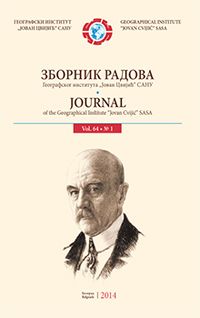Abstract
Tourism is a critical driver of economic growth in developing countries, where it often serves as a primary source of international revenue, job creation, and infrastructure development. Understanding the factors of tourism competitiveness is essential because it highlights the strengths and opportunities of a destination, helping it stand out in a competitive global market. By improving competitiveness, destinations can attract more visitors, promote sustainable economic development, and enhance the quality of life for local residents. Competitiveness in tourism also supports cultural preservation and environmental conservation, contributing to a balanced and resilient local economy. The objective of this study is to determine the main factors that impact the competitiveness of Serbia as a tourism destination, focusing specifically on tourists’ viewpoints. Through a comprehensive methodology, the research develops a tailored model for evaluating tourism destination competitiveness (TDC) in a developing economy context. The results highlight the significance of Serbia’s natural and cultural heritage, service quality, accessibility, technology, marketing, and sustainability as critical dimensions of its TDC. The study’s originality lies in its tourist-centered approach to TDC, which offers valuable recommendations for policymakers and destination management organizations (DMOs) in Serbia. This research adds to the existing literature by introducing an innovative, tourist-focused model that provides practical insights for improving tourism competitiveness in emerging markets.
Keywords: tourism destination competitiveness, tourists’ perspective, developing economy, Serbia

